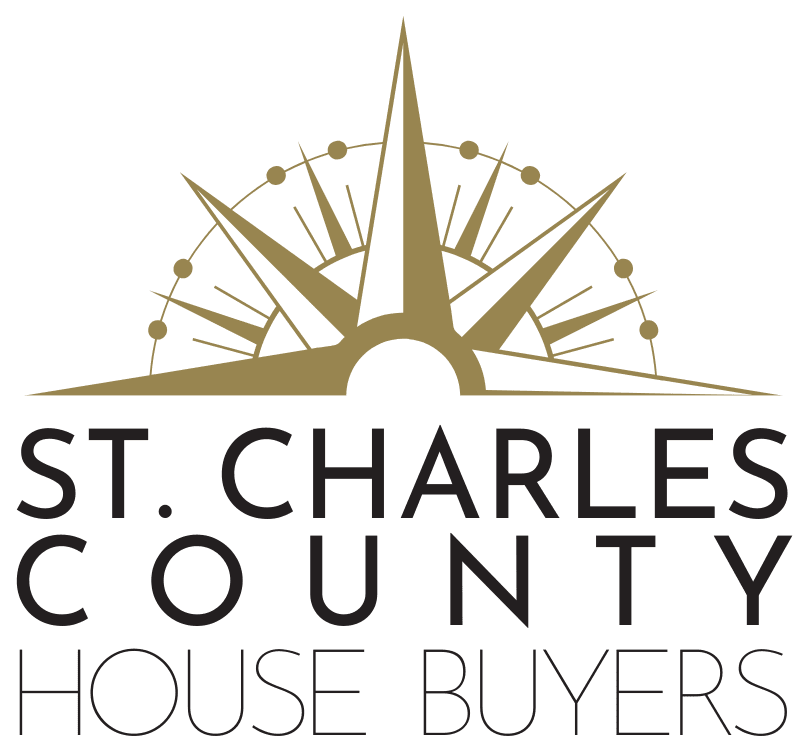The Ultimate Overview to Financing Options for a Realty Customer in 2025
As you check out the realty market in 2025, understanding your funding options is crucial. With a selection of choices-- from traditional mortgages to cutting-edge remedies like crowdfunding-- it's vital to find what fits your requirements best. Each option comes with its very own collection of benefits and factors to consider that can considerably impact your financial investment. So, what should you focus on when evaluating these options, and exactly how can they influence your trip to homeownership?
Understanding Traditional Home Mortgages
When it comes to purchasing genuine estate, lots of customers turn to typical mortgages as their best funding option. These fixed-rate fundings give stability, making it less complicated for you to spending plan your month-to-month payments gradually. Typically, you'll safeguard a home mortgage for 15 or 30 years, permitting you to spread out the cost of your home acquisition.
To qualify, lenders usually call for excellent credit rating, a steady revenue, and a reasonable debt-to-income ratio. You'll additionally require to offer a down payment, which can vary based on the finance kind and your financial situation.
Comprehending the terms and conditions of your home mortgage is crucial. Keep an eye out for rates of interest, charges, and prepayment fines that might influence your monetary future. By completely investigating your choices and contrasting deals from multiple loan providers, you can ensure you're making the most effective selection for your circumstance.

Checking Out Adjustable-Rate Mortgages
Adjustable-rate mortgages (ARMs) can be an attractive option for several customers. You'll intend to understand how they function, including their benefits and drawbacks, in addition to exactly how price changes affect your repayments. Checking out these details can aid you make a decision if an ARM fits your economic objectives.
What Are ARMs?

ARMs, or variable-rate mortgages, offer an adaptable funding choice that can attract buyers looking for lower initial repayments. With an ARM, your rate of interest is commonly reduced at the beginning compared to fixed-rate mortgages. This introductory period can last anywhere from a few months to a number of years, relying on the financing terms. After this preliminary phase, the rate readjusts periodically based upon market conditions, which can cause changing regular monthly settlements. It's essential to comprehend just how these changes function, as they can considerably impact your budget plan in time. Many ARMs included caps to restrict just how much your price can raise, offering some predictability. Generally, ARMs can be a critical option for particular customers.
Pros and Cons
Picking a variable-rate mortgage (ARM) can supply both benefits and disadvantages that you must evaluate thoroughly. On the plus side, ARMs generally start with reduced preliminary rates of interest compared to fixed-rate mortgages, which can indicate lower monthly repayments initially. This can aid you manage an extra expensive home or cost-free up money for other financial investments. Nonetheless, the downside is the capacity for rate rises after the preliminary period, which can lead to greater payments down the line. If rates of interest climb considerably, you might find on your own paying a lot more than you would certainly anticipated. Ultimately, it's vital to assess your economic circumstance and risk tolerance when deciding if an ARM matches your needs.
Rate Modification Mechanics
When thinking about an adjustable-rate home mortgage, understanding how price adjustments work is important. Generally, your rates of interest will start lower than fixed-rate fundings, yet it'll change after a first period, usually 5, 7, or one decade. The modifications depend on an index, like the LIBOR or the Treasury rate, plus a margin established by your loan provider.
Understanding the caps on how much your rate can enhance at each change and over the life of the lending is substantial. This aids you prepare for prospective payment changes.
The Increase of Alternative Financing Solutions
As standard funding approaches end up being much less easily accessible, numerous customers are transforming to alternative financing solutions to secure their desire homes. Alternatives like private money financing, crowdfunding, and lease-to-own contracts are obtaining traction. These solutions commonly bypass the stringent requirements of conventional financial institutions, making them eye-catching for customers who might not receive traditional fundings.
Personal money lending institutions can supply quicker approvals and even more adaptable terms, while crowdfunding permits several financiers to merge resources for a single home. Lease-to-own plans give a path for purchasers to safeguard a home while constructing equity over time.
Furthermore, vendor funding is becoming more preferred; this enables you to discuss terms directly with the property owner, potentially preventing a few of the obstacles associated with financial institutions. With a variety of imaginative funding alternatives readily available, you can find an option that fits your requirements and assists you accomplish homeownership without the standard difficulties.
Government-Backed Loans: What You Required to Know
When you're checking out funding alternatives, government-backed financings can be an excellent option. These fundings can be found in numerous kinds, each with particular advantages and requirements, so it's vital to comprehend what's available. Recognizing just how to certify for assistance can assist you take advantage of these options.
Kinds of Government Fundings
If you're considering buying a home, recognizing the various sorts of government-backed fundings can be vital to your financing alternatives. One of the most typical kinds include FHA, VA, and USDA lendings. FHA car loans are wonderful for novice purchasers, offering low down repayments and adaptable credit score needs. VA financings, offered to experts and active-duty military, offer no down repayment alternatives and competitive rate of interest rates. USDA finances accommodate rural buyers, advertising economical housing useful site without down repayment in eligible areas. Each of these finances has unique advantages and demands, so it's essential to research which one aligns finest with your economic circumstance and objectives. By exploring these options, you can make an extra educated decision on your home acquisition.
Certifying for Assistance
Just how do you recognize if you get government-backed car loans? First, check your credit rating; most programs require a minimal score, commonly around 580. Next, assess your earnings and employment history-- consistent revenue is vital. You'll also need to give documents like income tax return and pay stubs.
Debt-to-income ratio (DTI) plays a considerable duty as well; aim for a DTI of 43% or reduced. If you're a newbie property buyer, her latest blog specific programs offer added flexibility.
Last but not least, recognize the residential or commercial property requirements; the home must fulfill particular standards. By comprehending these criteria, you can better position on your own for government-backed help, making homeownership much more achievable. Always get in touch with a lending institution to clarify your eligibility!
The Impact of Rate Of Interest Rates on Funding Selections
As rates of interest fluctuate, they can greatly influence your funding choices in real estate. Higher prices commonly imply higher month-to-month payments on loans, which may push you to evaluate even more budget friendly properties or various financing choices (St Charles County House Buyers). It's important to keep an eye on present rates, as also a small boost can influence your spending plan substantially

You'll additionally wish to consider your credit report and economic security, as these aspects can affect the prices you're provided. Eventually, understanding rate of interest fads will aid you make informed decisions, ensuring you safeguard the very best financing choice for your actual estate financial investment.
Creative Financing Methods for Financiers
While conventional funding methods like mortgages prevail, many financiers find success by checking out innovative funding approaches. One efficient strategy is seller financing, where the seller acts as the loan provider, allowing you to discuss terms directly. This can streamline the procedure and commonly leads to lower closing prices.
One more choice is lease options, allowing you to rent out a residential or commercial property with the right to purchase it later on. This technique provides you time to boost your credit history or conserve for a deposit while protecting the property.
Collaborations can additionally be a game-changer. Joining other investors permits you to merge resources and share threats.
You could also take into consideration using hard money loans for quick financing, specifically in affordable markets. These lendings are based upon the residential property's value rather than your credit report.
Tips for Selecting the Right Funding Option
Picking the ideal financing alternative can significantly impact your property investment success, so it's important to evaluate your monetary scenario and objectives very carefully. Start by identifying exactly how much you can pay for, considering your earnings, cost savings, and various other expenses. Next off, evaluate your credit report; a greater score can safeguard far better rates of interest.
Discover numerous funding options, like conventional lendings, FHA car loans, or even creative approaches like vendor funding. Each features one-of-a-kind terms and benefits tailored to different needs. Do not fail to remember to aspect in closing expenses, month-to-month payments, and possible financial investment returns.
Seek advice from with a mortgage broker or monetary consultant to get individualized suggestions. They can help you comprehend the nuances of each option and locate the most effective fit for you. Finally, don't rush-- take your time to evaluate the advantages and disadvantages before making a choice. Your future self will certainly thank you!
Often Asked Inquiries
What Are the Minimum Credit Report Needs for Financing in 2025?
In 2025, minimal credit rating demands can differ by loan provider and lending type. Usually, you'll need a rating of at the very least 620 for conventional car loans, while FHA finances may accept scores as reduced as 500.
Just How Can I Enhance My Credit Rating Before Making An Application For a Financing?
To boost your credit rating before getting a loan, repay arrearages, keep credit application reduced, make payments on time, and check your credit history report for mistakes you can challenge.
Are There Specific Funding Choices for First-Time Homebuyers?
Yes, there are details funding choices for new homebuyers. You can check out FHA financings, USDA finances, and state support programs. These options usually need lower deposits and have more adaptable credit score demands, making homeownership obtainable.
What Records Are Needed for a Home Mortgage Application?
When you make an application for a home loan, you'll require records like evidence of revenue, tax obligation returns, financial institution statements, and identification. Collecting these beforehand can streamline your application and assist you secure financing quicker.
Can I Re-finance My Financing if Rate Of Interest Fees Drop?
